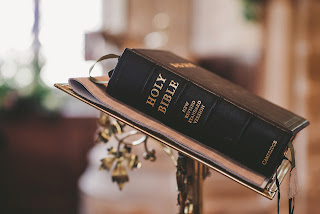This is a central image in the Gospel of John and in 1 John. 1 John 1.5 says it plainly, "God is light."
Light is also prominently featured in the Prologue of the Gospel of John, where the Logos is described as light:
In him was life, and the life was the light of all people. The light shines in the darkness, and the darkness did not overcome it.
What struck me today were the lines that soon follow, describing the reception of the light:
The true light, which enlightens everyone, was coming into the world. He was in the world, and the world came into being through him; yet the world did not know him.
In these passages we tend to focus upon the rejection of the light. The light comes into the world and the world "did not know him." But what struck me today in this verse was the phrase: "The true light, which enlightens everyone."
Against a backdrop of rejection a universal note is being struck. The verb here is present-tense ("enlightens") and the scope is "everyone" (literally, "all men/persons").
I'm cautious to push too hard here. John, it seems to me, is often more poet than theologian. Especially here in the Prologue. But I'm pondering how two contrasting things are being said here concerning the availability of the light.
First, everyone is standing in the light. The true light "enlightens everyone." That's a pretty wondrous and mysterious thing to contemplate.
It raises a question: How, exactly, is the true light enlightening everyone? If I had to hazard a guess, I'd say the "enlightenment" here is our shared participation in the divine Logos. Human rationality and consciousness, our ability to "see" and to "know" any "truth." Basically, if you posses a mind you are standing in the light. Everyone, as bearers of the image of God, possesses this ability, this enlightenment. As it says in the Psalms, "in Your light we see light."
And as some physicists like to say, everything is made of light.
And yet, the capacity to "see" and to "know" doesn't automatically lead to full illumination. We can turn our faces away from the Light to embrace shadows. You can fail to see the Light that enlightens you. Thus Paul's exhortation (1 Thess 5.5) that we strive to become "children of the day" and "children of light."


